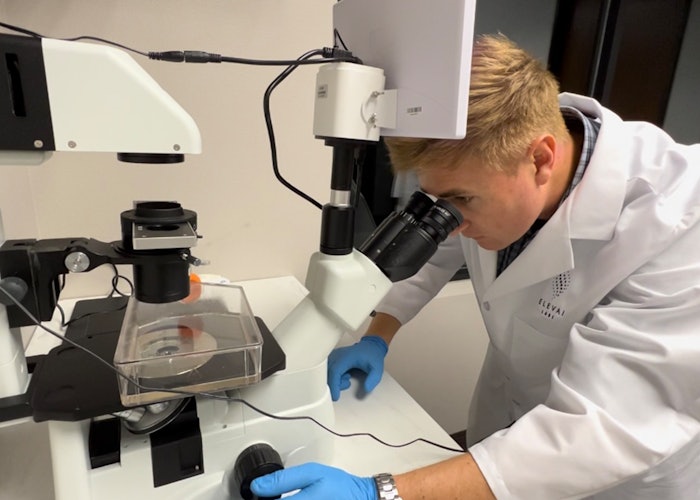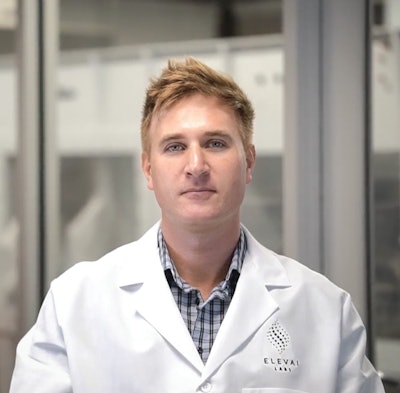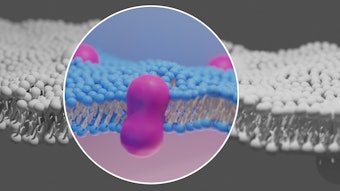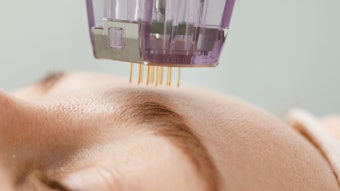

Jordan Plews, Ph.D., grew up in northern California on the outskirts of Sacramento. After some coaxing from his British father, Plews decided to go across the pond to University College of London for his undergraduate degree in biochemical engineering. Graduating at the top of his class, he then spent the next year doing an internship with Pfizer in the town of Sandwich in southern England. Plew’s experience during this internship would spark his interest in regenerative medicine and start him on the path to founding Elevai and bringing topical exosomes to world of aesthetics. Dr. Jordan PlewsPhoto Courtesy of Elevai Labs
Dr. Jordan PlewsPhoto Courtesy of Elevai Labs
He recalls, “After my undergrad, I went to Pfizer and thought, 'I’m going to help people.' I was living in this tiny little town of Sandwich, and I remember looking around at all the stuff we were doing and I thought, 'We’re not fixing a lot of problems here. We’re treating the symptoms of the problems. The problems that I care about, such as Alzheimer’s that runs in my family, are cellular problems.' That’s when I knew I wanted to be involved in stem cell research, and it's really what brought me into regenerative medicine.”
While Plews had no plans to return to England after this, a slew of scholarships convinced him to forego the sunny weather of California once again and return to UCL for his doctorate. It was then that Plews became interested in stem cells, specifically finding a way to make stem cells that didn’t come from human embryos. This essentially meant taking an adult cell and reprogramming it to reverse into an embryonic state, which wasn’t thought to be possible at the time. A 2007 paper by Shinya Yamanaka, M.D., Ph.D., which demonstrated how cells could be reprogrammed using retroviruses (retroviral mRNA), gave Plews his first major push in the right direction. However, since these stem cells still have viruses in their DNA, Plews set about developing an mRNA based reprogramming system to create synthetic mRNA, from which stem cells could then be taken without the problem of retroviruses integrated permanently into the DNA.
After completing this doctorate and returning to the US, Plews worked in a lab at Stanford University, extending the research he had been doing in the UK. At this time, he moved away from creating induced pluripotent stem cells, as they have a tendency to become cancerous, to multi-potent or mesenchymal stem cells that don’t continue to divide endlessly like pluripotent stem cells. It would be from these mesenchymal stem cells that Plews would isolate exosomes in the years to come.
Continue Reading our Digital Magazine to learn more about Dr.Plews Innovative Work with Exosomes...












